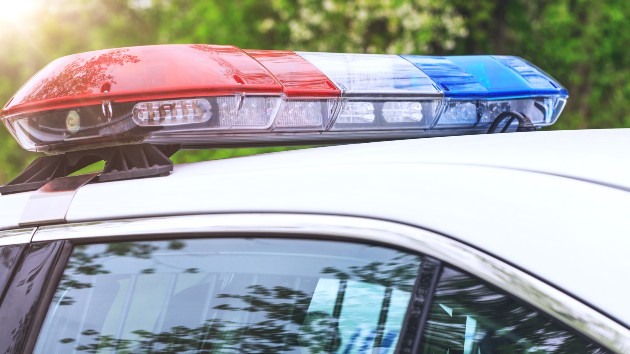By BILL HUTCHINSON, ABC News
(AURORA, Colo.) — The results of an independent investigation are to be made public Monday in the case of Elijah McClain, a 23-year-old autistic musician who died following a 2019 encounter with Colorado police officers who placed him in a chokehold and paramedics who injected him with a heavy dose of the sedative ketamine, officials said.
Details of the report are to be released prior to Monday evening’s Aurora City Council special study session on the report, which will be livestreamed online. The panel, which ordered the probe, is to hear a presentation from the investigators who spent seven months examining the high-profile case that prompted protests in Colorado and across the nation.
The city council unanimously approved a resolution in July to open the independent investigation based on a recommendation from the city’s Public Safety, Courts & Civil Service Policy Committee.
The council signed a contract with consultant Jonathan Smith, executive director of the Washington Lawyer’s Committee for Civil Rights and Urban Affairs, to lead the independent probe.
Smith’s team, comprised of police use-of-force and medical experts, was instructed to examine the actions of Aurora Police Department officers and Aurora Fire Rescue members, including emergency medical technicians, during the encounter with McClain and to make recommendations on how they can be improved.
“Per the council resolution, the investigation must include a creation of a timeline; a review of all facts from the start to the end of APD’s and AFR’s contact; and a review of relevant policies, procedures and practices, including, without limitation, those related to calls for service, police contact with individuals, use of force, calls for medical assistance, ketamine use, and administrative incident reviews,” according to a statement on the city’s website.
The statement adds, “Together, we all want to achieve meaningful improvements, eliminate racial inequity and make lives better in our community. This review — and ultimately its finding — is a critical step toward these goals.”
McClain was walking home in Aurora, a suburb of Denver, after buying iced tea at a corner store on Aug. 24, 2019, when he was stopped by three white Aurora police officers.
He was wearing a ski mask on a warm night — which his family attributed to him being cold due to having anemia — when a person called 911 at 10:30 p.m. to report him acting “sketchy,” according to an audio recording of the 911 call released by the Aurora Police Department.
The caller told a 911 operator that a man, later identified as McClain, a gifted violinist, “has a mask on” and “he might be a good person or a bad person.” The caller went on to say no weapons were involved and when asked if he or anyone else was in danger, the caller said “No.”
Police body camera footage showed McClain walking on the sidewalk when the three officers approached him, with one telling him multiple times to stop. But McClain, who was apparently listening to music at the time, continued to walk.
According to the body camera footage, an officer put his hands on McClain, saying, “Stop tensing up.” McClain replied, “Let go of me,” and told the police that he was “just going home.”
The officers took McClain to the ground and placed him in a carotid control hold — which involves an officer placing his arm around a person’s neck, restricting the flow of blood to the brain from the carotid arteries, according to a letter from Dave Young, the district attorney for Adams and Broomfield Counties, to then-Aurora Police Chief Nicholas Metz. McClain, who was placed in handcuffs, is heard in the footage saying, “I can’t breathe.”
Paramedics with Aurora Fire Rescue responded to the incident and gave McClain ketamine, as per their department protocol used for “rapid tranquilization in order to minimize time struggling,” according to officials. Paramedics also said that McClain possibly suffered from a condition called excited delirium.
McClain died three days after he was taken to a hospital.
Young declined to file criminal charges against the officers involved and the case was closed.
“I don’t condone any of the of the officers’ actions out there. In fact, I wish they would have done things differently. If someone is saying ‘I can’t breathe,’ get off of him. Do it. Just get off of him,” Young told ABC News in June. “But, again, that I have no indication that led to the cause of Mr. McClain’s death.”
He said he stands by his decision not to file criminal charges against the officers.
“If I can’t prove to a jury of 12 that their actions caused his death, then I cannot file criminal charges,” Young said.
In June, Colorado Gov. Jared Polis appointed state Attorney General Phil Weiser as a special prosecutor to reopen the investigation into McClain’s death to determine if criminal charges should be filed. The results of Weiser’s investigation are pending.
The FBI and the U.S. Department of Justice are also investigating McClain’s death to determine if federal civil rights charges should be filed against the officers.
Copyright © 2021, ABC Audio. All rights reserved.












